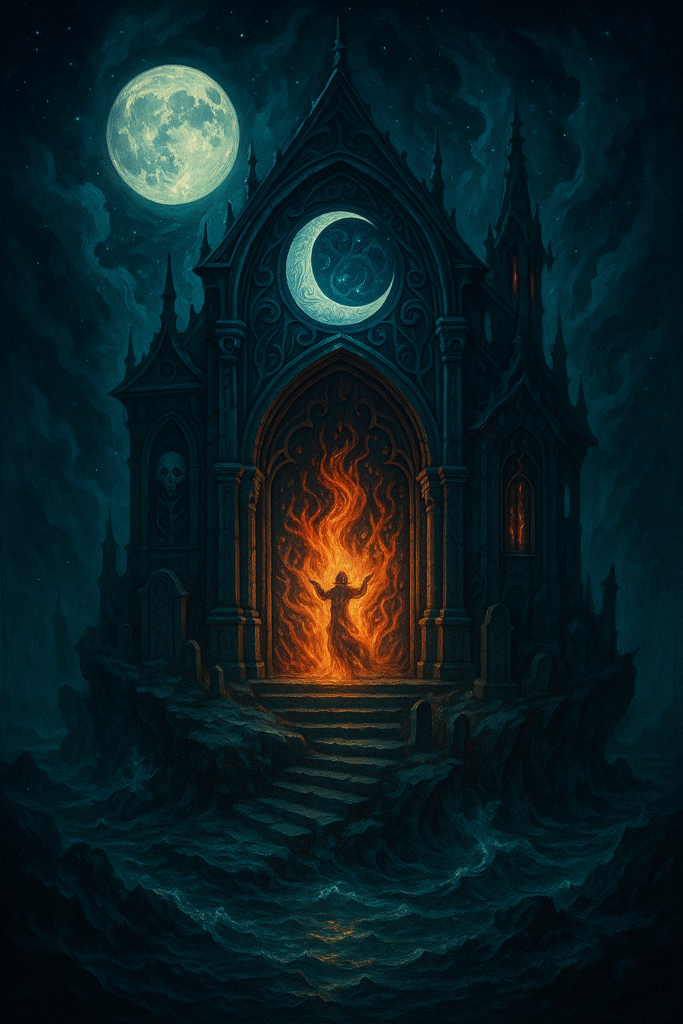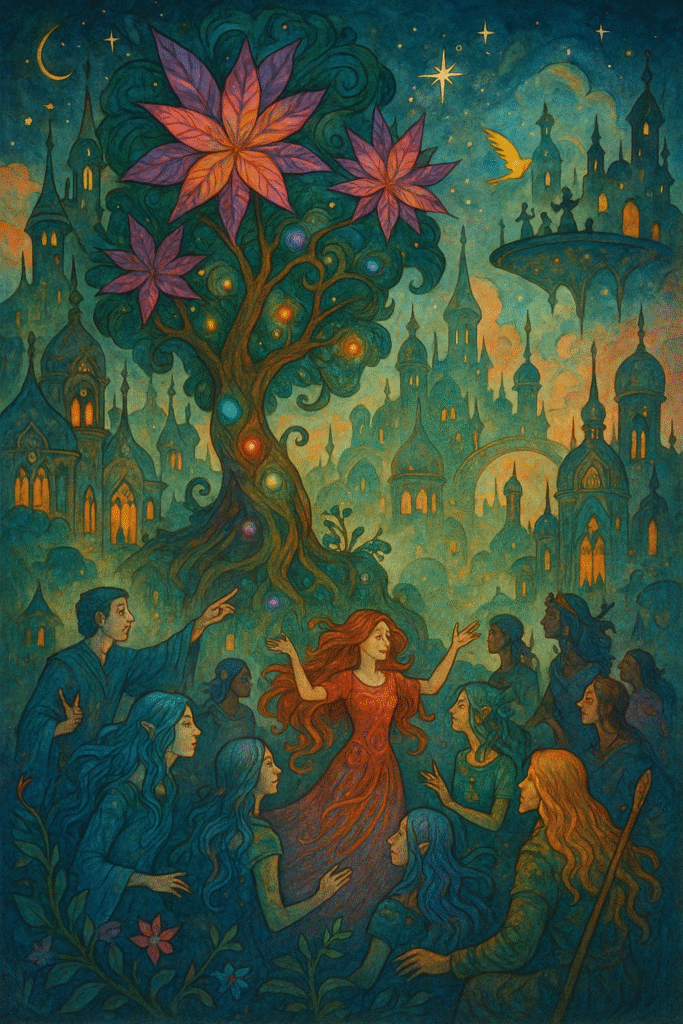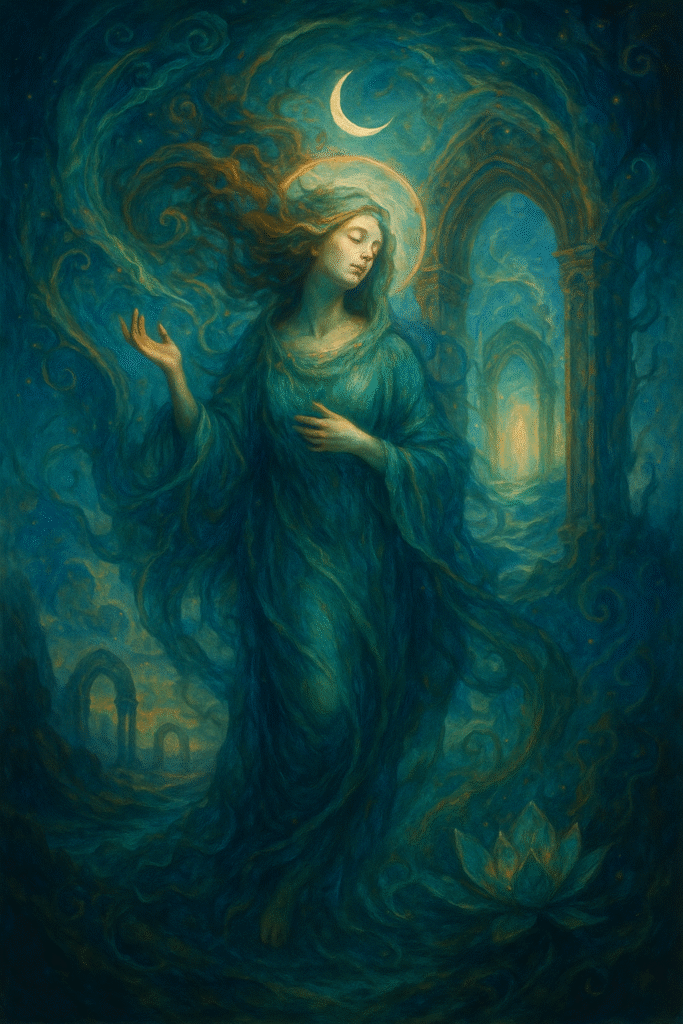12 Houses in Astrology
In astrology, the twelve houses represent different areas of life, each one showing where planetary energies unfold in our personal journey.
In astrology, the twelve houses represent different areas of life, each one showing where planetary energies unfold in our personal journey.
While the zodiac signs describe how we express ourselves, the houses reveal where these expressions take shape — from relationships and career to spirituality and hidden truths. Understanding the houses offers a map that connects the cosmic influences to everyday experiences.
Check out my e-books 👉 Core Astrology. They provide clear explanations and deeper insights to help you read charts with more confidence and clarity.

1st House: The House of Ego
The 1st house marks the beginning of the quadrant of the body. It aligns with the cardinal fire sign Aries and its ruling planet Mars. This is the realm of the expanded self — the area of personal expression and identity. The sign on the cusp of the 1st house shows how we appear to the world and how we assert ourselves in the material realm.
This house reveals our core life energy and the instinctual survival strategies we’ve used since birth. It reflects how we initiate action — the driving force behind our deeds — which is why it’s often associated with personal magnetism or “vibes.” The energy of the 1st house is like an aura surrounding us, eager to discharge itself into the world. The dilemma is the same as with Aries: do we channel this intense energy constructively or destructively?
Keywords: Life force, physical self, will, ego, personal drive, survival instincts, ambition, entrepreneurship, assertiveness, physical appearance, bodily strength, action, sports, vitality, innate physical conditions.
Primary (independent of life areas, constantly experienced) resources, sources of problems, tools, and modes of operation
The experience of the Self
Innate core character, which is not built on parental models
The personal planet in which it stands, or indicated by its number, denotes the one with whom the Self most identifies

2nd House: The House of Possessions
The 2nd house resonates with the fixed earth sign Taurus and reflects a deep connection to materiality and ownership. Here lies everything that we perceive as valuable — be it physical objects, emotional resources, intellectual talents, or even relationships. Through this house, we measure our self-worth.
It represents the foundation of our physical sense of security and how we ground ourselves in the material world. This house also offers insight into how we manage physical energy. The sign on the cusp and the planets residing here (along with their aspects) indicate whether the native is a hoarder obsessed with acquisition or someone who can truly enjoy and share their resources.
We are entrusted with both talents and treasures — the challenge is to use them wisely. They can be developed and expanded, or wasted and blocked.
Keywords: Material resources, value systems, self-worth, security, preservation, attachment, financial sense, income, spending habits, enjoyment, talents, possessions, relationship with objects, financial background.
The personal planet standing within it, or indicated by its number, denotes the person whom the chart holder relies on, who is their support system, from whom they draw strength, and who renews their resources.
Foundations ,Background, Security, Resources, Financial background ,Innate qualities, Talents, Abilities

3rd House: The House of the Mind
The 3rd house corresponds with Gemini, the mutable air sign ruled by Mercury. It governs intellect, communication, and our immediate surroundings. This is the realm of curiosity, learning, and how we form connections — particularly short-term or situational ones.
It reflects our mental energy, perception, and ability to articulate ideas. The 3rd house is also linked to transportation, short trips, early education, and the relationship with siblings. When strongly emphasized in a natal chart, the native may struggle with whether their quick, easy interactions remain superficial or grow into something meaningful — or merely become gossip loops.
Keywords: Practical and mental energy, communication, thinking style, learning, perception, expression, information exchange, speaking and writing, siblings, short travel, neighborhood, mobility, adaptability, intellect, business sense, commerce, verbal dexterity, changeability.
The environment of the chart holder
Relationship with the environment
Movement within the environment: transportation
Actors in the environment: neighbors, colleagues
Childhood environment: siblings
Energy exchange with the environment: information exchange, commerce
Non-self-reflecting (impersonal) relationships and transactions ,
The here and now

4th House: The House of Emotion and Family
Aligned with Cancer — a cardinal water sign ruled by the Moon — the 4th house represents the emotional foundation and our sense of inner security. It reveals our roots: our early family environment and the home we later create for ourselves. This is the space where we seek emotional safety and nurturing.
It reflects our concepts of care, emotional legacy, and ancestral connection. Symbolically, it represents both the beginning and the twilight of life. This house also corresponds to the father (or the dominant parent) in many traditions. If this house is prominent in a chart, there may be pivotal life lessons around separation from — or immersion in — the home and family structure. After exploring the outer world (symbolized by the 10th house), we return here to reconnect with the soul’s original soil.
Keywords: Emotional energy, inner world, psychological roots, origin, family, childhood, home, comfort, emotional security, close bonds, ancestral line, inherited traits or conditions, inner peace, tradition, the start and end of life, the father or parental figure.
The roots of the Soul born on Earth, Emotionally supportive environment, Homeland, The subconscious, Childhood traumas, Shame, Guilt, Family fate pattern,
Karmic memories and the blocks associated with them
Abilities and talents brought from previous life cycles

5th House: The House of Joy and Creation
This house resonates with Leo — the fixed fire sign ruled by the Sun. It governs creativity, self-expression, pleasure, and romantic flirtation. It represents the pure energy of living fully and openly — indulging in play, love, and artistic expression without fear or obligation.
The 5th house also rules over children and the inner child — the part of us that wants to shine, take risks, and be adored. People with a strong 5th house often crave recognition and may struggle with entitlement or overindulgence. In its shadow, this house can point to narcissism, gambling, or obsessive pursuit of luxury and status.
Keywords: Creative energy, pleasure, self-expression, romance, flirtation, sexual vitality, playfulness, passion projects, performance, risk-taking, entrepreneurship, dominance, personal power, hunger for success and recognition, love of luxury, children, the inner child, ego fulfillment.
The parental role as a creative activity and self-extension
Creative self-realization, Creativity, Artistic creation, Hobbies, Play, Ventures, Sources of joy, Recreation
The physical and energetic side of sexuality
Regeneration
A child as a source of joy

6th House: The House of Routine and Integration
The 6th house resonates with Virgo, the mutable earth sign ruled by Mercury. It is the realm of service, practicality, and the ability to adapt to systems. This house isn’t about personal wants — it speaks of responsibilities to others and to society.
Here, we submit to structure, repetition, and necessity. It calls for humility, duty, and the willingness to be a small but vital cog in the greater machinery of life. It governs daily routines, habits, health, and the work environment. The challenge of the 6th house lies in finding meaning within monotony and learning not to resent the tasks we are born to perform — no matter how humble.
Keywords: Daily energy, routine, service, humility, adaptability, integration, health, work, habits, systems, responsibility, practical thinking, applied intelligence, analytical skills, critical mindset, psychosomatic issues, work ethic, functional roles, anxiety, diligence.
Recurring illnesses
The Self’s periodically depleting—and therefore regularly recharging—resources
Daily routine
Repetitive activities
Everyday tasks
Hassles

7th House: The House of Partnership and the Outer World
Aligned with Libra — the cardinal air sign ruled by Venus — the 7th house reflects our relational identity and our engagement with the outer world. This is the realm of committed partnerships: marriage, collaborations, legal contracts, and even open adversaries.
It shows what — and who — completes us. The people and circumstances we attract here often mirror unacknowledged parts of ourselves. What first appears as “the other” eventually becomes a key to integration. Only later in life do many realize that these outer dynamics are rooted in something internal that must be reclaimed.
Keywords: Relational energy, partnerships, marriage, commitment, cooperation, mirroring, balance, fairness, legal alliances, external influences, compromises, complementary traits, relationship patterns, interpersonal reflection, enemies, open conflicts, mutual responsibility, external validation.
The planet indicated by the house number always denotes a person
Those roles that the Self can only assume by connecting with others (in a self-reflecting manner)
Those forms of energy that can only be experienced by connecting with others (in a self-reflecting manner)
Those missing forms of energy that one only gains access to through relationships with others
Those rejected forms of energy that others bring into one’s life

8th House: The House of Destiny and Transformation
The 8th house corresponds to Scorpio, the fixed water sign ruled by Pluto. It is the house of death, rebirth, and deep psychological transformation. This is where we encounter the unseen forces that shape life: the subconscious, taboos, suppressed desires, and the intensity of crisis.
When emphasized in a chart, this house suggests a life of emotional extremes and radical metamorphosis. The individual may seek to reshape the world to suit their inner truth — often through power, manipulation, or deep emotional entanglement. Yet these strategies often lead to confrontations with fate, forcing surrender or rebirth.
It also governs shared resources, inheritances, and money or property from others — including a partner’s assets. Whether this house manifests as trauma or empowerment depends on one’s willingness to face and alchemize pain into growth.
Keywords: Transformative energy, death and rebirth, shadow work, deep desires, suppressed emotions, taboos, secrets, emotional extremes, psychological depth, power struggles, shared resources, other people’s money, inheritance, intimacy, surgery, trauma, fate, crisis, healing through destruction.
Psychic power and healing
The experiential path of self-discovery
The spiritual dimension of sexuality
Areas beyond boundaries and taboos
Dimensional shift
Use of energies outside the system

9th House: The House of Ideals and Higher Knowledge
The 9th house corresponds to Sagittarius, the mutable fire sign ruled by Jupiter. This is the domain of personal belief systems, philosophical frameworks, and our quest for meaning. It represents higher education, long-distance travel, law, moral codes, and the expansion of our worldview.
Here, we search for truth, develop grand theories, and shape inner principles that eventually guide our outer actions. What begins as external study must evolve into internal conviction — something we embody and inspire others with. Those with a strong 9th house often feel a lifelong need to explore, learn, and synthesize new ideas. Their worldview is typically visionary, yet they must guard against becoming disconnected from everyday reality or chasing ideals they cannot practically sustain.
Keywords: Expansive thinking, philosophy, law, ethics, belief systems, higher education, travel, idealism, worldviews, truth-seeking, spiritual growth, moral development, personal evolution, synthesis, meaning of life, learning through experience, second marriage, grandchildren.
A Self-state planet in this area: the ambition to become known and famous
Highly valued, highly esteemed things
Goals and dreams placed far away or made unattainable
A planet denoting a person in this area: the high esteem, idealization, or unattainability of that role or person

10th House: The House of Vocation and Life Purpose
Associated with Capricorn, the cardinal earth sign ruled by Saturn, the 10th house defines our external purpose and the legacy we build. This is where personal ambition meets responsibility, and where inner potential must translate into societal contribution.
Often seen as the house of career, it represents much more — our public image, life’s highest calling, and the goals that give structure and meaning to our existence. It’s the crown of the life tree, standing opposite the 4th house (our roots). The achievements in this house are earned through perseverance, discipline, and responsibility. If we ignore our duties here, life eventually compels us to confront them.
This house can also reveal information about one’s mother or maternal influence.
Keywords: Purpose-driven energy, life mission, career, vocation, public standing, long-term goals, responsibility, structure, reputation, ambition, success through effort, societal roles, duty, discipline, maturity, legacy, maternal archetype.
Social engagement
The direction of self-building
Society’s appreciation or judgment
Public persona

11th House: The House of Community and Individual Expression
Ruled by Uranus and associated with Aquarius, the fixed air sign, the 11th house represents collective ideals, social engagement, and the way we express our individuality within larger groups. It reflects friendships, social causes, and our desire to contribute to the greater good.
This house shows how we collaborate with others while remaining true to ourselves. It’s the realm of reformers, visionaries, and non-conformists who seek to change the world — but it also warns against isolation through excessive independence or rebellion. When the need for freedom overrides connection, community becomes fragmented, and the individual risks alienation.
Keywords: Social energy, individuality within community, reform, freedom, rebellion, visionary thinking, humanitarian ideals, tolerance, innovation, friendships, alliances, patronage, social progress, change-making, nonconformity, group belonging vs. alienation, inner restlessness.
Individualization
Dependence and independence
The tension of dependence on family (partnership, friendship, workplace, economic, social) systems and the urge to break free from them
Alternative paths and solutions that differ from the functioning of existing systems
Areas of social justice and advocacy
Groups brought together by common ideals or views
Political or social activism

12th House: The House of Transcendence and Surrender
The 12th house corresponds to Pisces, the mutable water sign, and is ruled by Neptune. This house governs the unseen, the mystical, and all that transcends the physical world. It represents the realm beyond logic — the collective unconscious, spiritual dissolution, and the hidden dimensions of life.
What resides here is often concealed — from others and even from ourselves. These parts of us are activated only in extraordinary situations that demand sacrifice, solitude, or spiritual awareness. The 12th house is associated with secrets, isolation, and the things we suppress, forget, or relinquish.
When heavily emphasized, this house can manifest as passivity, escapism, victimhood, or addiction — even time spent in closed institutions. Yet, in its highest expression, it offers the gateway to universal wisdom, deep compassion, and connection with the divine. Within solitude lies the potential for mystical awakening and the healing of old karmic wounds.
Keywords: Spiritual energy, withdrawal, isolation, transcendence, sacrifice, compassion, hidden life, secret connections, behind-the-scenes work, surrender, dissolution of the ego, mysticism, dreams, empathy, unconscious patterns, karmic healing, escape mechanisms, institutions, exams, chronic illness, intuitive faith.
Inner work
Topics that represent an ever-increasing burden for the Self, seemingly without any hope of a solution
Solutions that unfold with unnoticeable slowness (the process of maturation and change in this house is so slow that it is hidden from the experiencer, who perceives stagnation in that area)
Roles and life themes that mature and emerge slowly
Activities hidden from the public eye
The long-term acquisition of skills and knowledge
You can download the full “12 Houses in Astrology” e-book for free on my Gumroad page.